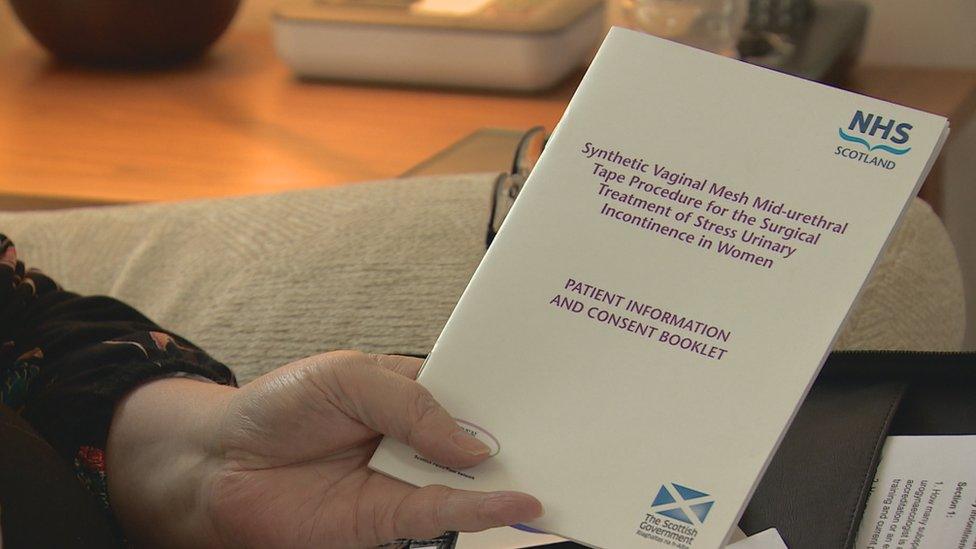Robison defends mesh inquiry findings
- Published
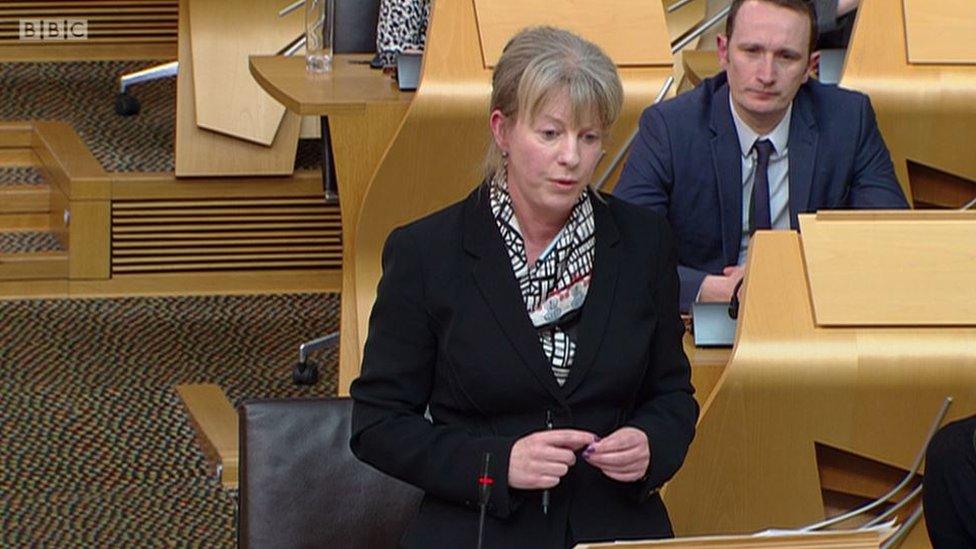
Shona Robison said lessons could be learned from the process of the inquiry but said its findings and evidence would stand
Health Secretary Shona Robison has defended the independent inquiry into mesh implants amid claims of a "whitewash" and a "cover-up".
Three members of the mesh implants review group resigned, with claims parts of the report had been removed.
Ms Robison said all evidence had been published, and said it was not the government's place to ban mesh.
First Minister Nicola Sturgeon earlier said she was "deeply sorry" for the suffering of women affected by mesh.
The report centres on the use of transvaginal mesh implant surgery, which has left some women with painful and debilitating complications.
The implants are medical devices used by surgeons to treat pelvic organ prolapse and incontinence in women, conditions that can commonly occur after childbirth.
In the wake of a petition from mesh survivors, an independent inquiry was set up. It concluded that mesh implant procedures should not be offered routinely to women with pelvic organ prolapse, and recommended patients should be offered a range of treatments and the chance to make "informed choices".
The Scottish government has accepted all the recommendations of the report, and the health secretary subsequently gave a statement to parliament.
Challenged by Tory Jackson Carlaw and Labour's Neil Findlay that the affair was a "scandal" and the report was a "whitewash", Ms Robison conceded there had been difficulties and challenges, but said all evidence collected had been published.
And she insisted it was not down to the Scottish government to ban the use of mesh, saying only the Medicines and Healthcare Products Regulatory Agency (MHRA) could do this.

What the report says:
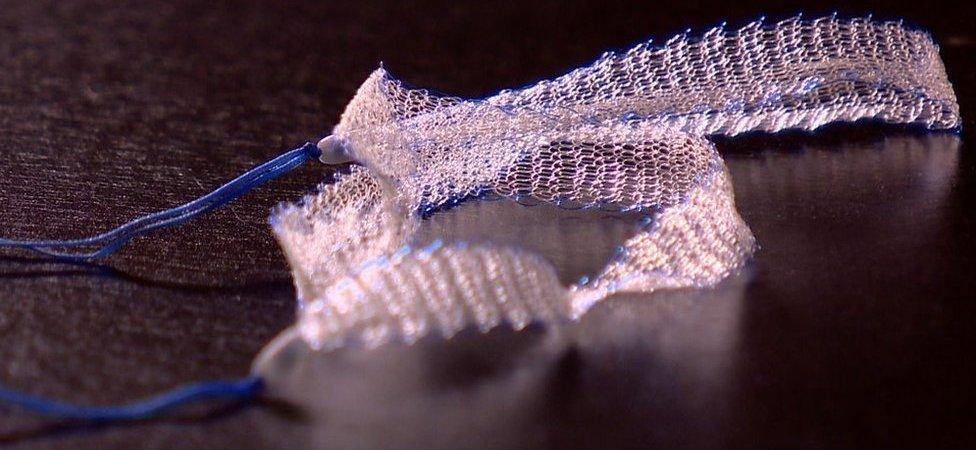
Mesh must not be offered routinely to women with pelvic organ prolapse
Reporting of all procedures and adverse events should be mandatory
Extra steps to ensure patients have access to clear, understandable advice to help them make informed choices
Calls for improved training and research
All treatments should be made available to treat incontinence - including mesh
The final report states: "It is clear that a number of women have suffered serious, life-changing complications following transvaginal mesh implant surgery.
"It is also evident that many women have benefited from these procedures.
"However, due to the way these procedures are coded, it is not possible to provide accurate data on the number of mesh procedures where complications have occurred.
"This lack of information, allied with the fact that adverse events have been under-reported, has led to opinion being divided on the safety of transvaginal mesh procedures."

Former health secretary Alex Neil, who set up the inquiry, said he was "disturbed and disappointed" with where the review had ended up, saying: "If we don't carry the confidence and trust of patients, then these reports are not worth the paper they're written on."
Ms Robison replied that lessons had to be learned from the process of the review, but said the clinical evidence, conclusions and recommendations would stand. She emphasised that all evidence had been published, either in the final report or online.
The health secretary thanked everyone who had taken part in the review, in particular those who led the initial campaigns.
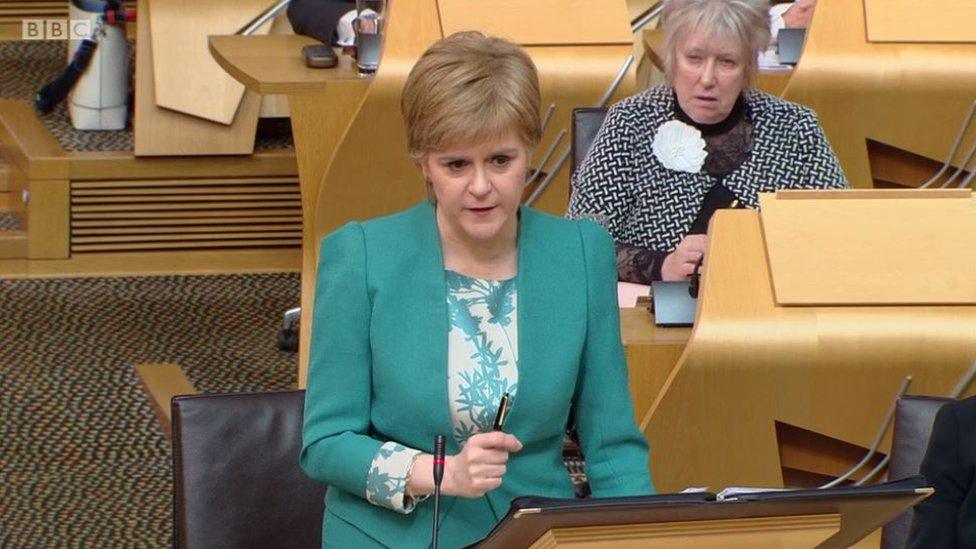
Nicola Sturgeon said she was "deeply sorry" for those who had suffered
Earlier, Ms Sturgeon was pressed on the issue during the weekly session of questions to the first minister.
Scottish Labour leader Kezia Dugdale read out an emotive letter from the daughter of a mesh survivor, adding: "There has been a cover-up and this is a national scandal".
She called on the government to "ban this devastating and dangerous practice once and for all", and asked Ms Sturgeon to apologise to survivors.
The first minister said: "Of course, I am deeply sorry for the suffering of these women...who have suffered complications because of treatment with mesh."
She added that the review included "eight important conclusions that health boards across the country will now be expected to take forward".
- Published27 March 2017
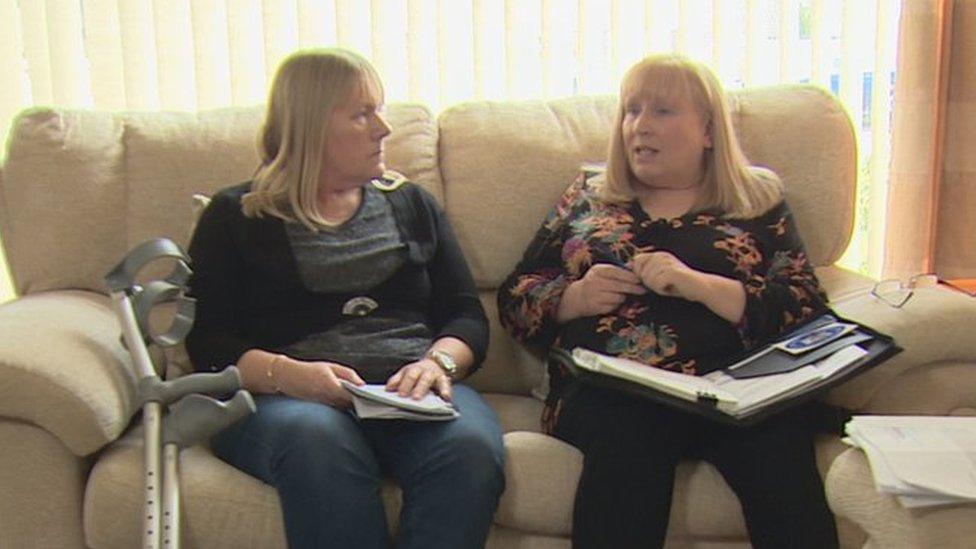
- Published15 March 2017
